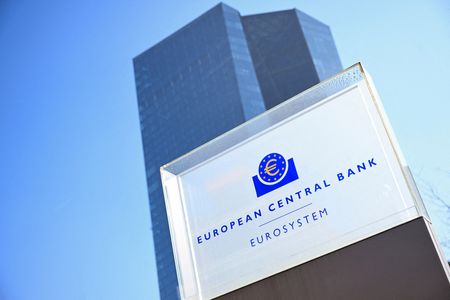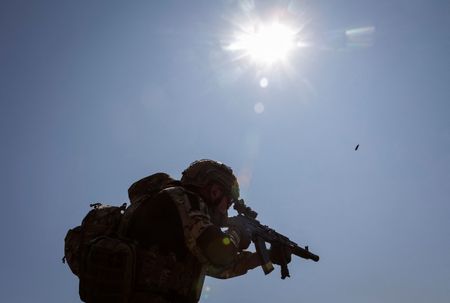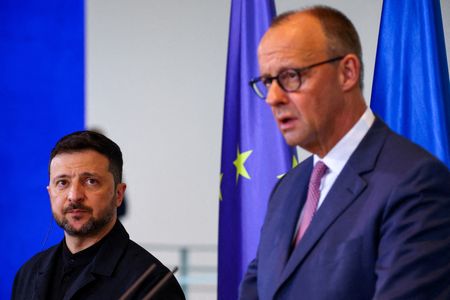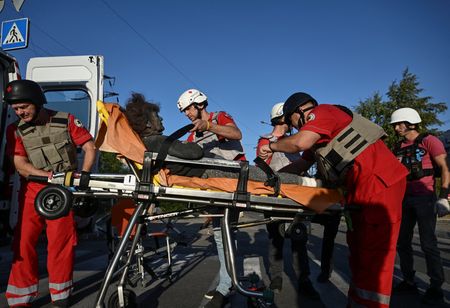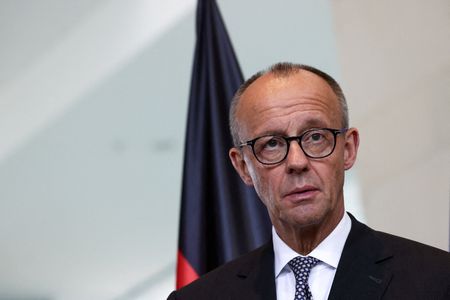FRANKFURT (Reuters) -Inflation in March came in far below forecasts in two of the euro zone’s largest economies, data showed on Friday, while consumer expectations for price growth remained muted, bolstering bets for another European Central Bank rate cut.
The ECB has cut interest rates six times since June and markets now see an 80% to 85% chance of another move in three weeks, as price pressures seem to be easing on more modest wage hikes and continued economic stagnation.
Inflation in France held steady at 0.9% in March and came in below expectations for 1.1%. In Spain the figure fell to 2.2% from 2.9%, well below forecasts for 2.6%.
These numbers indicate that the overall euro zone figure, due on April 1, could also come below expectations and inch closer to the ECB’s 2% target sooner than some policymakers had forecast.
While a full-blown trade war with the United States could upset price expectations, the ECB doubled down on its view that the main impact would be on growth.
“The effect would be fundamentally on economic activity,” ECB Vice President Luis de Guindos said. “For inflation, a trade war would have a negative effect, ultimately a tariff is a tax on imported goods, but over the medium term the reduction in economic activity would compensate this initial impact in some way.”
Consumers also appeared relaxed by the price effect of geopolitical tensions with the ECB’s own survey showing moderating inflation perceptions and steady price expectations.
Median expectations for inflation over the next 12 months held at 2.6% while for three years ahead it was steady at 2.4%, the ECB said.
“We have good news on inflation… the disinflation process is continuing,” de Guindos said. “We are convinced that in the next few quarters we’ll achieve our definition of price stability, which is 2%, on a sustainable basis.”
Consumers remained more pessimistic about economic growth, however, anticipating a 1.2% contraction over the next 12 months after seeing a decline of 1.1% in January.
(Reporting by Balazs Koranyi and Francesco Canepa; editing by Mark Heinrich and Hugh Lawson)

